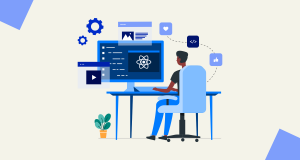As the technology landscape continues to evolve, so do the skills required for software engineers. To remain competitive and effective in their roles, software engineers will need to cultivate a diverse set of skills that address both current trends and future demands. Here are ten essential skills that will be crucial for software engineers in 2025.

1. Proficiency in AI and Machine Learning
Overview
AI and machine learning are revolutionizing how software applications operate. Understanding these technologies enables engineers to develop smarter applications that learn from data.
Importance
- Implementing Algorithms: Engineers will need to understand how to implement various machine learning algorithms and frameworks.
- Data Handling: Skills in data preprocessing and model evaluation will be essential.
2. Cloud Computing Expertise
Overview
As more companies move their operations to the cloud, familiarity with cloud computing platforms (like AWS, Google Cloud, or Azure) will be critical.
Importance
- Cloud Architecture: Engineers should understand how to design and optimize cloud-native applications and services.
- Cost Management: Skills in managing cloud resources effectively can lead to significant cost savings for organizations.
3. DevOps and Continuous Integration/Continuous Deployment (CI/CD)
Overview
DevOps practices have become integral to software development, promoting collaboration between development and operations teams to streamline workflows.
Importance
- Automation Skills: Understanding CI/CD tools and automation techniques will enable faster and more reliable software releases.
- Monitoring and Feedback Loops: Engineers should know how to set up monitoring systems to provide constant feedback on application performance.
4. Cybersecurity Awareness
Overview
With increasing cybersecurity threats, software engineers must prioritize security in their development processes.
Importance
- Secure Coding Practices: Knowledge of secure coding techniques and best practices is essential to protect applications from vulnerabilities.
- Risk Assessment: Skills in identifying and mitigating risks throughout the software lifecycle will be crucial.
5. Soft Skills: Communication and Collaboration
Overview
Technical skills alone are not enough; engineers must also excel in communication and collaboration.
Importance
- Cross-Functional Teams: Engineers often work with teams across various disciplines, making strong communication skills vital for effective collaboration.
- User-Centric Approach: Understanding user needs and communicating effectively with stakeholders can lead to better product outcomes.
6. Agile Methodologies
Overview
Agile methodologies are widely adopted in software development for their flexibility and iterative approach.
Importance
- Scrum and Kanban: Familiarity with Scrum, Kanban, and other Agile frameworks will help engineers adapt to changing project requirements quickly.
- Sprint Planning: Skills in planning and executing sprints effectively will improve team productivity and responsiveness.
7. Understanding of APIs and Microservices
Overview
APIs and microservices architecture are essential for building scalable and maintainable applications.
Importance
- Integration Skills: Engineers must know how to design and integrate APIs that allow different services to communicate seamlessly.
- Microservices Management: Understanding the principles of microservices will enable engineers to build modular applications that are easier to test and deploy.
8. Data-Driven Decision Making
Overview
The ability to make decisions based on data is increasingly important in software development.
Importance
- Analytics Tools: Engineers should be comfortable using analytics and visualization tools to derive insights from user data and application performance.
- Feature Prioritization: Skills in data analysis will help prioritize features that add the most value to users and stakeholders.
9. Familiarity with Emerging Technologies
Overview
Staying updated with emerging technologies such as blockchain, quantum computing, and augmented reality will set engineers apart.
Importance
- Innovative Solutions: Knowledge of these technologies enables engineers to explore new solutions and applications in their projects.
- Adaptability: Being familiar with emerging fields will help engineers adapt to industry changes and leverage new opportunities.
10. Cross-Platform Development Skills
Overview
As mobile and web applications evolve, engineers will need skills in cross-platform development frameworks.
Importance
- Frameworks Knowledge: Familiarity with frameworks like React Native or Flutter will help engineers build applications that work seamlessly across devices.
- User Experience Optimization: Understanding the nuances of different platforms will ensure a consistent and optimized user experience.
Conclusion
In 2025, the landscape for software engineers will be shaped by rapid technological advancements and changing industry needs. To remain competitive, software engineers must cultivate a diverse skill set that includes proficiency in AI and machine learning, cloud computing expertise, and an emphasis on cybersecurity. Additionally, soft skills and familiarity with agile methodologies will enhance collaboration and adaptability. By mastering these ten essential skills, software engineers can position themselves for success in an increasingly complex and dynamic environment.
🌐 Website: [Tinasoft]
📩 Fanpage: Tinasoft Vietnam













